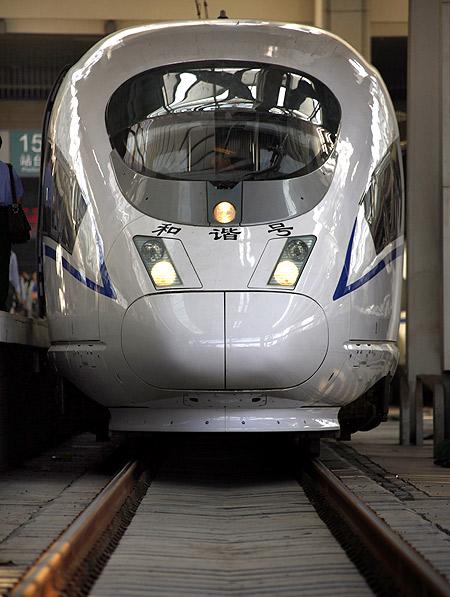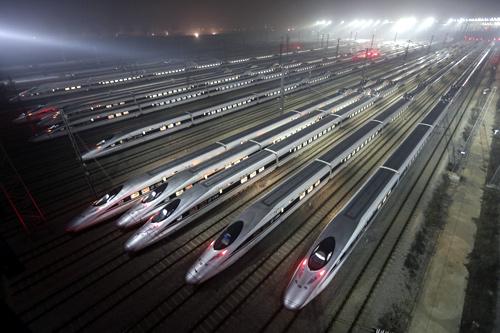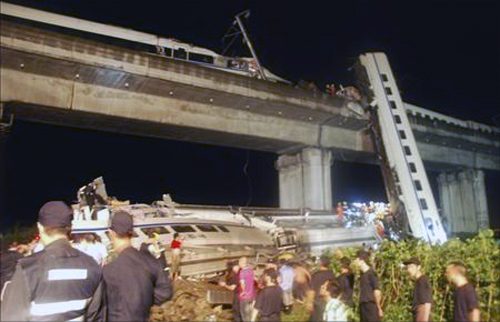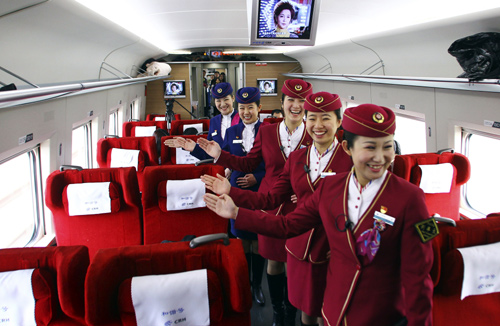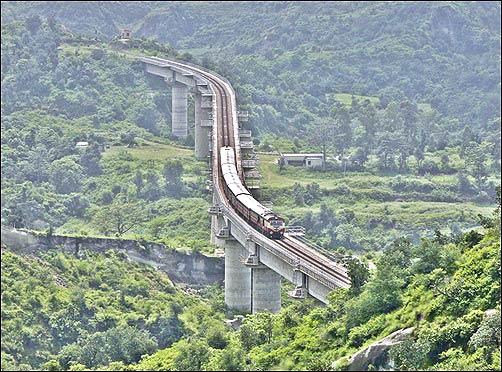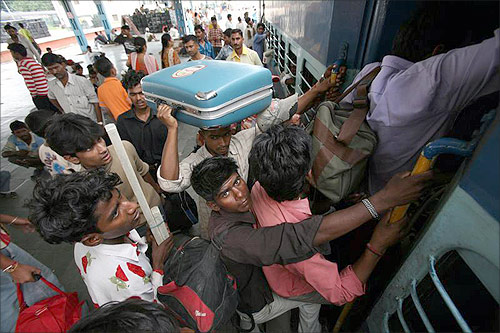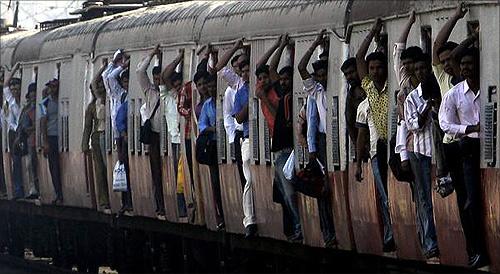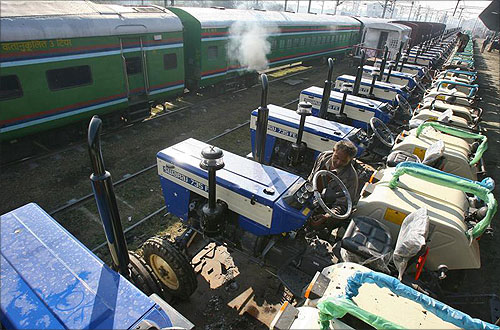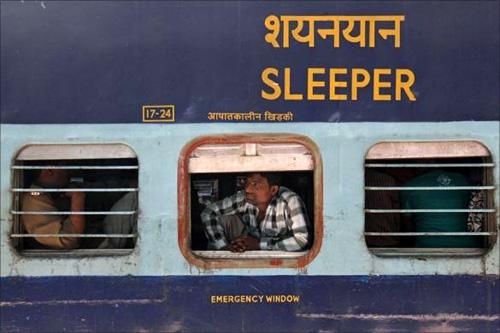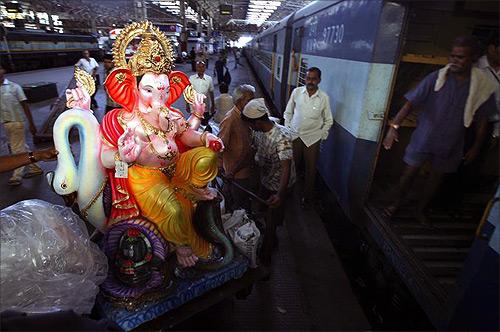 | « Back to article | Print this article |
Why Indian Railways continues to remain inefficient
In the 66 years since Independence, the country has added only 13,000 km of new railway line. The finances of the Railways are in dire need of repair, says Bhupesh Bhandari comparing Indian Railways with the Chinese Railway.
The Chinese government has decided to dismantle its railway ministry. The commercial operations will be taken over by a new company called China Railway Corp, while the regulatory functions will be entrusted to the transport ministry.
The move is aimed to improve efficiency and stamp out corruption. The quality of the service has to be raised to meet the expectations of the country's rising affluent class.
The ministry had for long resisted reforms. It was a law unto itself. People would call it "Boss Railway".
Click NEXT to read more...
Why Indian Railways continues to remain inefficient
The Chinese government had started separating state companies from regulatory bodies 15 years ago. It is only now that the railway ministry's turn has come. It gives you an idea of how powerful the ministry must have been.
Corruption is the largest issue there. A senior functionary related to the bullet train network was removed from office two years ago amid charges of bribery.
One allegation against him, a newspaper reported, was that he had 18 mistresses! Another high-ranking official, it came to light, had bought a house in Los Angeles for $860,000, though his monthly salary was a few hundred dollars.
Click NEXT to read more...
Why Indian Railways continues to remain inefficient
A railway line in the northeast had to be almost fully redone because unqualified subcontractors filled the foundations of bridges with stone and sand instead of concrete.
After an accident killed 40 and injured 177 in July 2011, there was widespread outrage over the quality of work on the bullet train network, the railway ministry's showcase project.
In the rush to complete the network quickly, the ministry had compromised on the quality of the civil works, it was alleged. The online ticketing platform would often crash. Holiday season every year became a nightmare for travellers in China.
Click NEXT to read more...
Why Indian Railways continues to remain inefficient
Over time, it became a mammoth organisation. The ministry employs 2.1 million people for its 80,000 km of railway lines.
Apart from the railway network, the ministry runs the Railway Art Troupe and the China Locomotive Sports Team.
It had its own police force until 2009, and operated its own courts till August last year. Thanks to the massive capital works, the ministry is sitting on a huge pile of debt.
Click NEXT to read more...
Why Indian Railways continues to remain inefficient
Those who have been following the Indian Railways will find the accusations somewhat familiar.
It, too, is a bloated organisation (1.4 million people for 63,300 km of railway line) that also operates hospitals and factories, runs colonies, clubs and restaurants, manages stadiums and has its own police force.
In 2012-13, it distributed Rs 20,000 crore in pensions, which was over 60 per cent of its passenger earnings of Rs 32,500 crore for the year.
Click NEXT to read more...
Why Indian Railways continues to remain inefficient
Is there corruption at the highest levels? It must be said that nothing of the scale of Coalgate, the 2G scam and the various defence kickbacks has so far come to light. Is it efficiently managed? The answer is an unequivocal no.
The railways have a measure called the operating ratio, or working expenses as a ratio of traffic receipts.
It deteriorated from 75.9 per cent in 2007-08 (when Lalu Prasad was the railway minister) to 94.7 per cent in 2009-10 (when Mamata Banerjee was the minister) before improving to 88.8 per cent in 2012-13.
Click NEXT to read more...
Why Indian Railways continues to remain inefficient
A recent World Bank study found that the employee productivity of the Chinese railway is 45 per cent higher than that of its Indian counterpart.
The rail network of India is bursting at its seams, thanks to the penchant of every railway minister to announce a slew of new trains.
In the 66 years since Independence, the country has added only 13,000 km of new railway line.
Click NEXT to read more...
Why Indian Railways continues to remain inefficient
With high wear and tear of lines, the Indian Railways is unable to run heavier, longer and faster freight trains. This results in lower productivity.
In India, freight of only up to 22.5 tonnes per axle is allowed. Other countries allow up to 37 tonnes.
The finances of the Railways are in dire need of repair. In 2012-13, for example, the gross traffic receipts fell short of the target of Rs 1,32,552 crore by Rs 6,872 crore.
Click NEXT to read more...
Why Indian Railways continues to remain inefficient
Dinesh Trivedi last year lost his job for raising passenger fares without consulting his boss, Mamata Banerjee, and attempted to de-politicise fare fixation by proposing to set up an independent Rail Tariff Authority.
Though the ministry came back to the Congress, the proposal has been put on the back burner. Railway Minister Pawan Kumar Bansal last month announced that the proposal was at the "inter-ministerial consulting stage". You know what that means.
Why Indian Railways continues to remain inefficient
The ministry responded by cutting the proposed allocation to the depreciation reserve fund by Rs 2,500 crore. Still, the surplus (of receipts over expenditure) was Rs 5,148 crore short of the target (Rs 15,557 crore).
This surplus is set aside for the Railway Development Fund and the Capital Fund. Both the funds saw cuts (it was particularly deep for the Capital Fund) as a result.
It is well known that railway ministers are reluctant to raise passenger fares. Instead, they keep on increasing freight rates to fill their coffers. As a result, passenger fares in India are among the lowest in the world, and the freight rates are among the highest.
Click NEXT to read more...
Why Indian Railways continues to remain inefficient
So, people prefer to transport their goods through roads than the railway network. Roads account for 57 per cent of freight traffic in India, which is lower in the United States (44 per cent) and China (22 per cent).
India, according to the World Bank report, carries "much more passenger service than freight, which constrains productivity, raises cost and invites political interference in operations and pricing". How true.
Click NEXT to read more...
